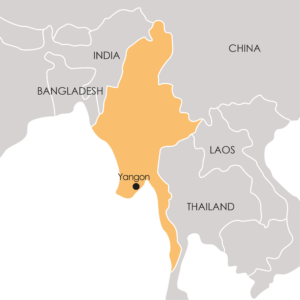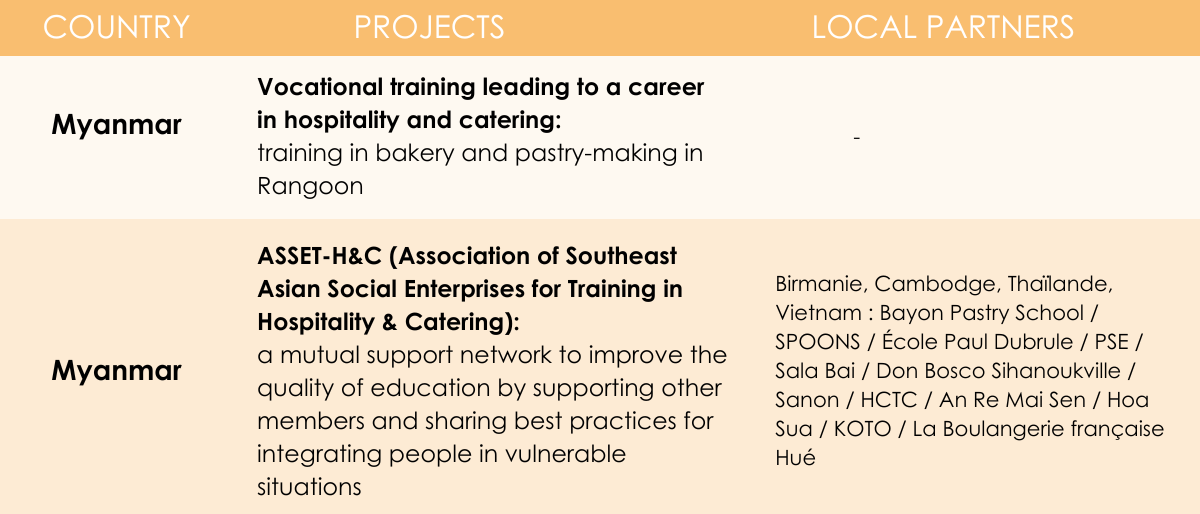Myanmar
With a population in excess of 50 million, Myanmar, also known as Burma, is the second largest nation in South-East Asia. This predominantly agricultural country is rich in natural resources, including minerals, hydrocarbons and timber, and has remarkably fertile soil. However, it faces countless conflicts. A significant proportion of its population, over 20%, lives below the poverty line. Agriculture is a vital source of income for almost 70% of the population, with many families relying on meagre incomes from this sector for their survival.
During the decade of 2010, Myanmar’s economy flourished, posting one of the most robust growth rates in Southeast Asia, with rapid growth in tourism prompting a redefinition of the local workforce in favour of this sector. However, the political coup d’état of 2021 brutally halted the country’s growth, degrading the Burmese condition, pushing millions below the poverty line and generating massive displacements due to armed clashes in the country.
Since 2016, the IECD has been using its expertise to promote the socio-professional integration of young people from precarious backgrounds in the hotel and catering sectors.
The establishment of a training centre and ‘La Boulangerie Française’, a social enterprise, coupled with technical support given to other local entities, has facilitated access to employment for many young people within the tourism and restaurant industry.
To help the severely affected population, the IECD team in Yangon, with the support of its local partner, launched a support initiative for small businesses in January 2024. This programme supports artisans, shopkeepers and street vendors in the Dala district, south of Yangon, who are living in extreme poverty.
In 2023, the IECD and its local partner implemented 1 project.



